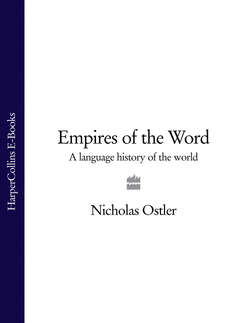Читать книгу Empires of the Word: A Language History of the World - Nicholas Ostler - Страница 13
PART II LANGUAGES BY LAND
ОглавлениеTwo Italian opinions, separated by fifteen centuries, on the value of an imposed common language:
nec ignoro ingrati et segnis animi existimari posse merito si, obiter atque in transcursu AD hunc modum dicatur terra omnium terrarum alumna eadem et parens, numine deum electa quae caelum ipsum clarius faceret, sparsa congregaret imperia ritusque molliret et tot populorum discordes ferasque linguas sermonis commercio contraheret ad colloquia et humanitatem homini daret, breviterque una cunctarum gentium in toto orbe patria fieret.
I am aware that I may be quite rightly thought thankless and lazy if I touch so lightly on that land which is both the foster-child and parent of all lands, called by Providence to make the very sky brighter, to bring together its far-flung domains, to civilise their ways of life, to unite in conversation the wild, quarrelsome tongues of all their many peoples through common use of its language, to give culture to mankind, and in short to become the one fatherland of every nation in the world.
Pliny the Elder (AD 24–79), Naturalis Historia, iii.39
The yoke of arms is shaken off more readily by subject peoples than the yoke of language.
attributed to Lorenzo Valla, Italian humanist (1406–57), in his Elegantiarum Libri VI
